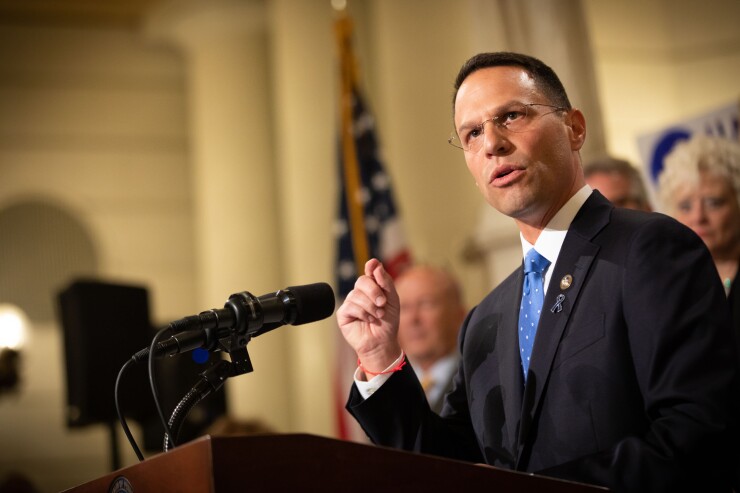A U.S. appeals court on Monday dealt a setback to the student loan company Navient, which is the target of state and federal lawsuits that accuse it of predatory lending before and after the last financial crisis.
The 3rd U.S. Circuit Court of Appeals in Philadelphia ruled that the Pennsylvania attorney general could bring a lawsuit that parallels one filed by the federal Consumer Financial Protection Bureau. The appeals court said that federal law — in this case, the Higher Education Act — did not generally preempt state law and that Pennsylvania could proceed with its litigation.

The CFPB and three states — Illinois, Washington and Pennsylvania — filed similar civil suits in 2017 that alleged various consumer abuses. The ruling was notable because it addressed the concept of dual regulation and the push and pull between states and the federal government over the strictness of consumer protection.
"States may be able to pick up slack when the federal government fails to enforce and regulate,” the 42-page ruling said. “If the Bureau were under pressure to settle or withdraw its lawsuit, states would still be free to protect the rights of consumers in their states."
To be sure, the decision did not rule on the actual substance of
At issue was an argument by Navient that the state could not pursue its suit because the CFPB had already filed a similar lawsuit. Navient, which separately is
Each side said it saw some advantage in the ruling.
“This is another major win against Navient,” Attorney General Josh Shapiro told American Banker. “It’s time for them to drop this delay and start focusing on how to make these students and their families whole and admit their wrongdoing. In my estimation, they should immediately compensate students and their families for the billions of dollars they’ve fleeced them out of.”
In an email to American Banker, a Navient spokesman said that the ruling affirmed its position that states are not allowed to set up other disclosure requirements in addition to the federal Higher Education Act.
“Navient consistently met and surpassed its requirements to inform borrowers about income-driven repayment options to help them navigate an overly complicated federal student loan repayment process,” the email said. “We look forward to working through each of the plaintiff’s claims with the District Court to show they are preempted.”
Navient shares rose nearly 4% on Monday, to $8.34.
The 2017 complaint by the state of Pennsylvania accused Navient’s corporate predecessor, Sallie Mae Corp., of marketing high-cost, risky loans to student borrowers who had a poor chance of repaying them. The student loan company did this in order to attain preferred lender status with schools’ financial aid offices and therefore make profitable loans to prime borrowers, the complaint said.
It also accused Navient of steering borrowers into costly forbearance programs instead of cheaper income-driven repayment plans. Navient charged 1.5 million borrowers $4 billion in excess interest from January 2010 to March 2015, according to the lawsuit.
Broadly, Monday’s ruling could be seen as a victory for states’ rights at a time when some states see the federal government as taking too light of a touch with the industries it regulates.
Because Navient maintains a large student loan servicing center in Wilkes-Barre, with about 1,000 employees, Pennsylvania’s complaint covers all of its student borrowers nationwide, Shapiro argues.
“It certainly is a win for states to bring consumer actions and not be barred by some federal government action,” he said.





